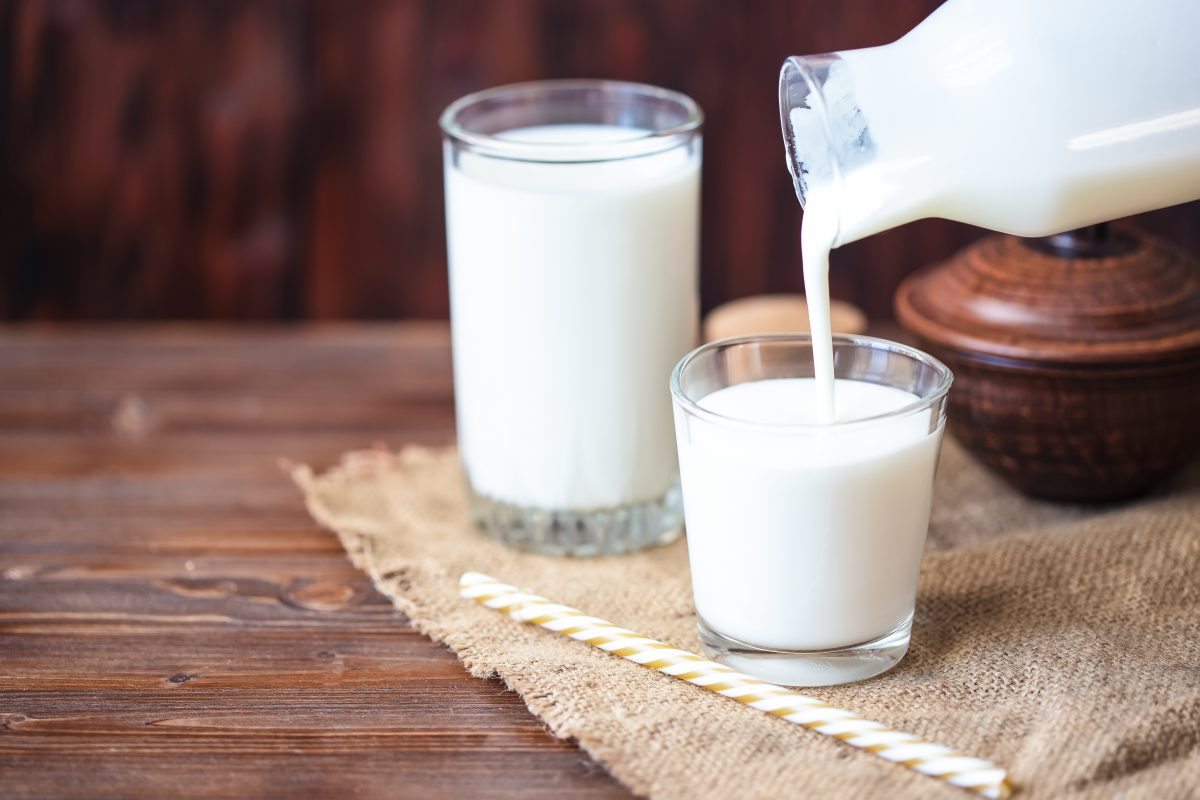Dairy and IBS – Is there a link? answered by a Dietitian
- Dietary Advice (non Low FODMAP)
Is there a link between dairy and IBS?
It is common to think that you need to avoid dairy to help your IBS but the reality is not quite that simple.
In this article we will teach you how to find out if there is a link between your IBS and dairy or not. You will also find out what types of dairy could be an issue.

Dairy allergy vs lactose intolerance vs IBS – What is the difference?
There are several reasons why someone with IBS may react to dairy and it is important to understand the difference between the potential causes.
Having a lactose intolerance means that you are unable to digest lactose (a naturally occurring sugar found in some dairy).
The undigested lactose causes symptoms by traveling to your large bowel where it draws in water and creates gas. Gas + water will cause symptoms such as bloating and diarrhea.
It is important to note that if you have lactose intolerance you will be able to consume small amounts of lactose with no symptoms. And, not all dairy contains lactose.
You therefore do not need a dairy free diet if you have a lactose intolerance. You can read more about lactose intolerance here: ‘Understanding Lactose Intolerance.’
A cow’s milk allergy is different to having a lactose intolerance. If you have a cow’s milk allergy then you will have an immune system reaction to any amount of the protein found in cow’s milk.
If you have a cow’s milk allergy then you must remain completely free from consuming cow’s milk.
Finally, if you have IBS then you may be intolerant to various foods and this may or may not include having a lactose intolerance. (3).
IBS and lactose intolerance
The prevalence of IBS is 5-10% worldwide, and the prevalence of lactose intolerance is 68% worldwide (4, 16).
Misdiagnosis of lactose-intolerance with IBS is a common occurrence due to both conditions sharing similar symptoms including diarrhea and abdominal pain (2,3,6).
Although multiple studies show a link between lactose intolerance and diarrhea dominant IBS this is likely due to chance or mis-diagnosis (4, 5, 9, 7).
So, the two conditions may not be linked at all.
There are also no studies to explain why lactose intolerance would cause IBS or vice versa.
Dairy and IBS: lactase supplementation use
Could lactase supplementation aid your symptoms? Well, not necessarily.
Studies have found no significant evidence to suggest that lactase supplementation would alleviate symptoms associated with IBS if IBS were the cause (13).
Monash also supports the claim that lactase supplements alone cannot help IBS symptoms (10).
This is likely due to the fact that avoiding lactose will only benefit you if you have a lactose intolerance.
Does dairy make IBS worse?
There is currently no research to show a link between dairy and IBS symptoms worsening.
If you experienced symptoms worsening when you consume dairy products then you may have a lactose tolerance or milk allergy.
Some dairy products such as cheese and ice cream also contain high amounts of fat which can trigger pain and looser stools in people with IBS.

What type of dairy is good for IBS?
There is no research to show that dairy is good for IBS, in terms of improving symptoms.
However, there is some specific research showing that a probiotic yogurt where Lactobacillus rhamnosus GG (LGG) was added did aid in alleviating IBS symptoms (12).
(Lactobacillus rhamnosus GG (LGG) is a type of bacteria).
It is important to note that most yogurt with live cultures are not considered a probiotic as they have no proven health benefit.
For more information on this topic, check out our other post ‘probiotics for IBS.’
Does high-fat dairy trigger IBS symptoms?
There are no current studies on high fat dairy and IBS symptoms specifically. However there are studies in to high fat diets and IBS symptoms (14).
It is thought that high fat diets stimulate secretions of bile and other pancreatic secretions leading to your small intestine drawing in more water. Then this increases the chances of diarrhea (18).
Summary
Lactose intolerance and IBS-D are seen to be linked to each other through prevalence or potential misdiagnosis.
There is no known association with a lactose-free diet or lactase supplements and relieving IBS symptoms.
Alongside this, there is research to suggest that the probiotic LGG enhanced yogurt and milk could alleviate IBS symptoms. However it is case by case dependent.
Therefore, there is a link between dairy and IBS. However, it is on an individual basis rather than a one-size-fits-all.
By Maiya Bahra, Pediatric Dietitian, reviewed by Kirsten Jackson Consultant Dietitian BSc Hons, RD, PG Cert